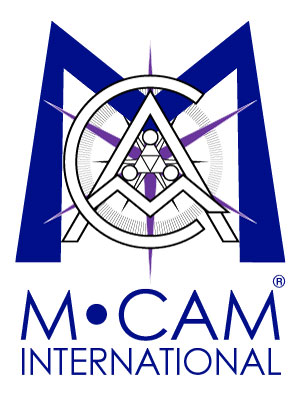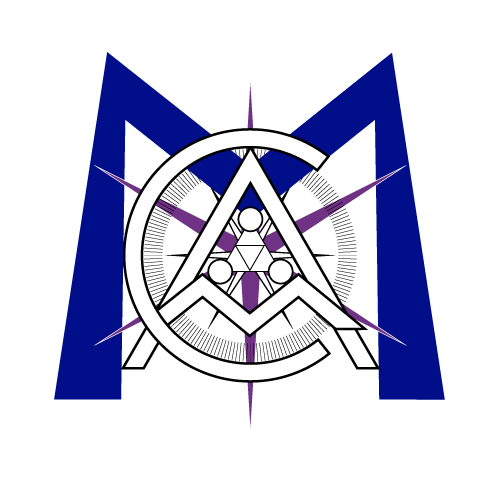M·CAM CEO Presents Economic Assessment of Software Patent Council Common Position at EU Parliament
Date: Tue, 2004-11-09
November 9, 2004 Today, Dr. David Martin, M·CAM CEO and University of Virginia’s Darden Business School Batten Fellow, addressed a special roundtable in the Parliament in Brussels regarding the economic impact of computer implemented software inventions. This roundtable was organized by the Head of the Finnish Delegation to the European Parliament in the EPP-ED Group, Mrs. Piia-Noora Kauppi. Participant speakers in the roundtable included Mr. Tim Frain (Nokia), Mr. Erik Josefsson (Foundation for a Free Information Infrastructure – FFII), Mr. Mark MacGann (European Information, Communications and Consumer Electronics Technology Industry Association – EICTA), and, Mr. Florian Mueller (My SQL, AB). M·CAM’s presentation focused on the facts that:
- European companies and the European Patent Office are already awarding a considerable number of patents that fall within the non-patentable subject matter definitions of the proposed Council Common Position – a reality that, while potentially impacting EU enforcement, will do little to abate the pursuit of such patents in international markets;
- The “debate” about software patents is fueled by current ambiguity in the terminology of the Council Common Position as currently drafted; and,
- The EU Parliament should actively deploy the considerable economic consequence data on the economic development impact of its proposal by looking at legacy experience in other countries – notably the United States – where the patenting of software enabled technology and business methods was improperly deployed by a patent office incapable of handling such inventions and by courts who created patentability standards outside the scope of Congressional consideration of appropriate controls that would have prevented the abuse of such patents.
Dr. Martin Addresses Brussels EU Conference: Regulating Knowledge: Costs, Risks, and Models of Innovation
Date: Tue, 2004-11-09
M·CAM’s role in IRS enforcement highlighted by Harvard Journal of Lay & Technology
Date: Mon, 2004-11-01
U.S. Tax Bill Closes Door on Patent Donation Shelter
Date: Fri, 2004-10-15
M·CAM CEO to Address Virginia’s 10™ Annual SBIR Conference
Date: Thu, 2004-10-14
PUBPAT Challenges Lipitor® Patent to Protect Public Health
Date: Tue, 2004-09-14
M·CAM Unveils Mandarin Interface at the State Intellectual Property Office (SIPO) in Beijing
Date: Fri, 2004-08-20
Charlottesville Company Values Intellectual Property
Date: Mon, 2004-08-16
M·CAM CEO Comments on Tiered Patent System and its Possible Impacts on Financial Markets in IEEE Study
Date: Sun, 2004-08-01
M·CAM Constructs Japan/Maine Technology Transfer and Development Agreement
Date: Wed, 2004-07-21
M·CAM management to participate in IPR Lecture at the Indian Institute of Management in Ahmedabad
Date: Fri, 2004-07-02
M·CAM speaks at Carnegie Institutions in Washington D.C.
Date: Fri, 2004-06-04
June 4, 2004 M·CAM CEO David Martin joined a panel of national experts on intellectual property and legislative policy to discuss “Information Patents: The Public Interest Agenda”. Among the distinguished participants were James Love (Consumer Project on Technology); Brian Kahin (University of Michigan), Philippe Aigrain (Society for Public Information Spaces); Rita Heimes (University of Maine); Jim Bessen (Boston University); Dan Ravicher (Public Patent Foundation); Josh Sarnoff (American University); and, Jason Shultz (Electronic Frontier Foundation).
Intangibles are no longer undetectable, the taxman says
Date: Tue, 2004-06-01
Excerpted from: Adrian Preston. June/July 2004 “Intangibles are no longer undetectable, the taxman says.” Intellectual Asset Management pp 27-28 One of the major problems associated with the donation of patents is valuation. Valuing IP is, of course, a difficult and complex business. This perhaps explains why in the past the sheer complexity of the issues at stake has deterred IRS staff from asking too many questions and treating the patent donations scheme with what has been described as benign neglect. That attitude is changing fast. In an address to the Senate Finance Committee’s Roundtable on Patent Donations, David Martin, CEO of M·CAM, a leading IP verification business that has been working with the IRS to review patent donations cases said: “The IRS has struggled to make critical advances in an effort to enforce the quite adequate laws that are currently on the books. Though intimidated by those who have their self interests to protect in the accounting and legal communities, the IRS is attempting to educate its professionals on what questions to ask when reviewing patent-related transactions. Considering the revenue requirements of our government, it is imperative that revenue collection be facilitated immediately. The era when intangible was synonymous with undetectable is over.” Those words promise an IRS stance that is only likely to get tougher. Increased scrutiny of donations is not simply likely, it is inevitable, and businesses that are considering or have in the past made donations for which they received a tax benefit need to consider their compliance obligations urgently. The IRS has indicated that it is not simply the corporate donors themselves that could be liable to penalties if, on investigation, the value placed on a patent and the tax deduction claimed turns out to be inflated. The advisers and appraisers who have helped put the donation together could also find themselves facing punitive action.
M·CAM and SAS Institute introduce SAS Innovation Analysis at SAS Executive Conference
Date: Mon, 2004-05-24
May 24, 2004 M·CAM and SAS have launched a cooperative effort to supply innovation analysis solutions to SAS customers. The Life Sciences focus for SAS’ Executive Conference serve as an ideal venue to introduce these market-leading products and services.
M·CAM Partnership with PIPRA Presents Patent Alternatives to Developing Countries
Date: Thu, 2004-05-20
M·CAM sponsors 14™ International Zeolite Conference in South Africa
Date: Sun, 2004-04-25
April 25, 2004 M·CAM is pleased to sponsor the week-long 14th International Zeolite Conference in Cape Town South Africa. This conference brings together the world’s leading scientific and business experts in the field. M·CAM will be introducing its international patent risk management solutions to several of the R&D and business attendees.

